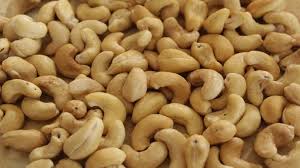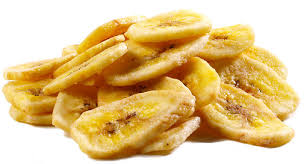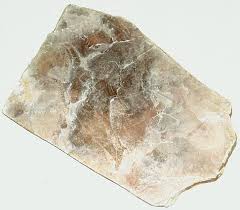Cashew Kernel Production and Export From Nigeria; The Feasibility Report.

Cashew (Anacardium occidentale) is an important industrial and export crop whose potential is yet to be fully exploited in Nigeria. Cashew has for many years been used for food and income generation. The trees are usually grown for their kernels which when roasted have a very pleasant taste. Cashew is the common name for a tropical and subtropical evergreen tree, Anacardium occidentale L., in the flowering plant family Anacardiaceae.
It is also the name for the commercially important kidney-shaped, nut like seed of this plant, which is edible when roasted or cooked (New World Encyclopaedia, 2008). The plant is a native of Tropical Central and South America, notably North Eastern Brazil, from where the Portuguese explorers introduced it into Nigeria in the 15th/16th century.
Nigeria, having a total area of 100,000ha cashew plantation and an average annual production of 80,000MT contributes almost 16% of the total production of the agro-ecological zone. Its production is 5% of the global situation. During the last three years, Nigeria has been one of the leading suppliers of raw cashew nuts exported to India. Nearly 18,000 to 23,000MT of raw nuts per annum have been exported earning about N23 billion annually.
Raw nuts which are much in demand in industrialized countries are processed into kernels that constitute a valuable export product for confectionery. They are used as an ingredient for making fruit paste, candied fruit, canned fruit, cashew apple, resins, jams and jellies, chutney, fruit juice, alcohol and vinegar. Cashew kernels rank third after almonds and hazelnuts in the international trade of tree nuts. Wine and pulp are produced from cashew apple. Apple is eaten as a raw fruit or is fermented to produce a delicious alcoholic drink. The pulp is the fibrous part obtained after extracting juice from the apple and could be used as animal feed or dried and processed into diet fiber biscuit. Another product of cashew is the Cashew Nut Shell Liquid (CNSL). It is greatly valued in the international market as a raw material for brake and clutch linings, paints, and vanishes. It is also used in lacques, agglutinants, insecticides and fungicides.
This report examines the financial viability of establishing a cashew nut processing plant in Nigeria. The plant will produce cashew kernel and Cashew Nut Shell Liquid (CNSL) as its main product.
It is estimated that 60 percent of cashew kernels are consumed in the form of snacks while the remaining 40 percent are included in confectionery. The cashew competes in the same market as other edible nuts including almonds, hazels, walnuts, pecans, macadamias, pistachios and peanuts. There has recently been a considerable rise in demand for edible nuts by consumers interested in quality and health aspects of food. The breakfast cereal, health food, salads and baked goods markets are all expanding markets for cashew nuts.
Cashew nut processing allows for the development of an important by-product which can increase its added value. The liquid inside the shell (CNSL) represents 15 percent of the gross weight and has some attractive possible medicinal and industrial uses. CNSL is one of the few natural resins that is highly heat resistant and is used in braking systems and in paint manufacture.
It contains a compound known as anacardium, which is used to treat dermatological disorders. The main markets for CNSL are the United States, the European Union (mainly the United Kingdom), Japan and the Republic of Korea. Together these account for over ninety percent of world trade, most of which is supplied by India and Brazil.
The installed capacity of the plant would be four (4) tons of cashew nuts per day producing one (1) tons of cashew kernel. The plant and operate at eighty percent (80%) of the installed capacity producing cashew kernel as its main product for the international market
Table of Contents
EXECUTIVE SUMMARY 1.0 Business Overview 1.1 Description of the Business 1.2 Vision and Mission Statement 1.3 Business Objective 1.4 Value Proposition 1.5 Critical Success Factor of the Business 1.6 Current Status of Business 1.7 Description of the Business Industry 1.8 Contribution to Local and National Economy 2. Marketing Plan 2.1 Description of product 2.2 Product Packaging and delivery 2.3 The Opportunity 2.4 Pricing Strategy 2.5 Target Market 2.6 Distribution and Delivery Strategy 2.7 Promotional Strategy 2.8 Competition 3. Production and Export Plan 3.1 Description of the Location 3.2 Raw Materials 3.3 Production Equipment 3.4 Production Process 3.4.1 Pre-Export Documentations in Nigeria 3.4.2 Post-Export Documentations (Exchange Control Documents) 3.5 Production Cost 3.6 Stock Control Process 3.7 Pre-Operating activities and expenses 3.7.1 Operating Activities and Expenses 3.8 Project Implementation Schedule 4.0 Organizational and Management Plan 4.1 Ownership of the business 4.2 Profile of the promoters 4.3 Key Management Staff 4.3.2 Management Support Units 4.4 Details of salary schedule 5. Financial Plan 5.1 Financial Assumption 5.2 Start up Capital Estimation 5.3 Source of Capital 5.4 Security of Loan 5.5 Loan Repayment Plan 5.6. Profit and Loss Account 5.7 Cash Flow Analysis 5.8 Viability Analysis 6.0 Business Risk and mitigation factor 6.1 Business Risks 6.2 SWOT Analysis
Project Specification:
Additional Info
Get this Report
Direct bank transfer
To order the report, Please do pay the sum of ₦150,000 into
Account Name : Foraminifera Market Research Ltd
Account Number : 274 20 569 37
Account Name : Foraminifera Market Research Ltd
Account Number : 101 76 603 95
Account Name : Foraminifera Ventures
Account Number : 011 66 066 32
Make your payment directly into our bank account. Please use your Order ID as the payment reference. Your order will not be shipped until the funds have cleared in our account.
Instructions
After payment call us on 01 -29 52 413 / 08033782777 or email us at foraminiferamarketresearch@yahoo.com with the payment details. After payment confirmation, the soft copy of the report would be sent to you within 24 hours.



